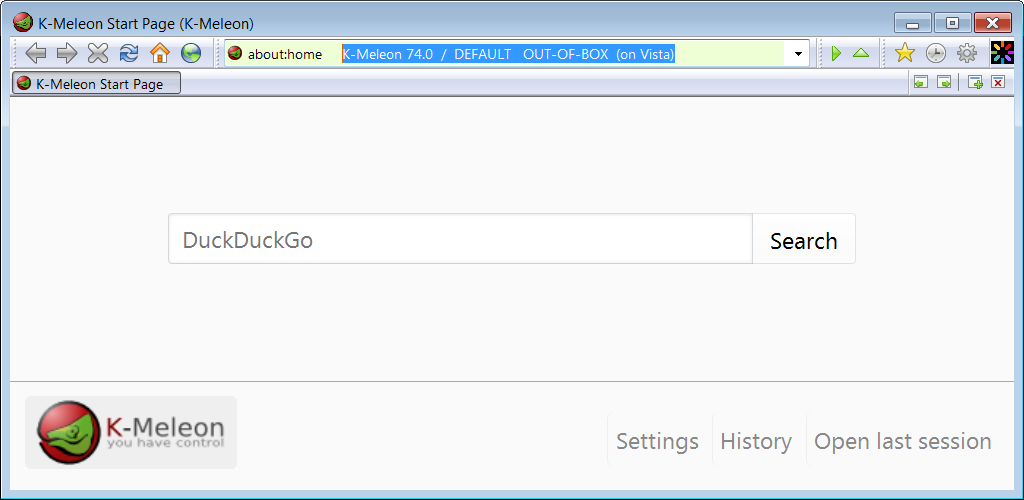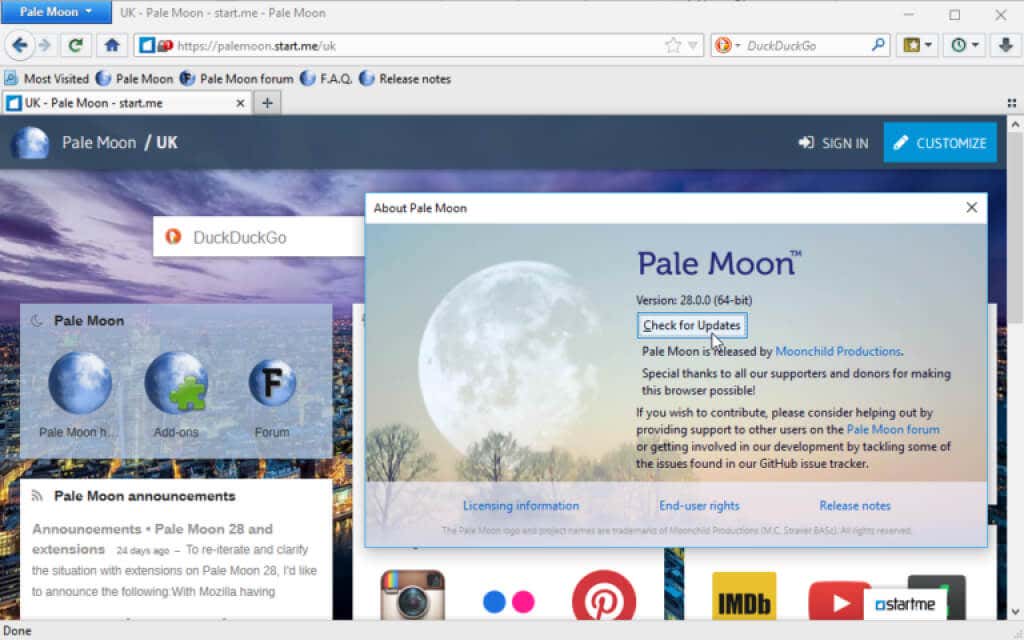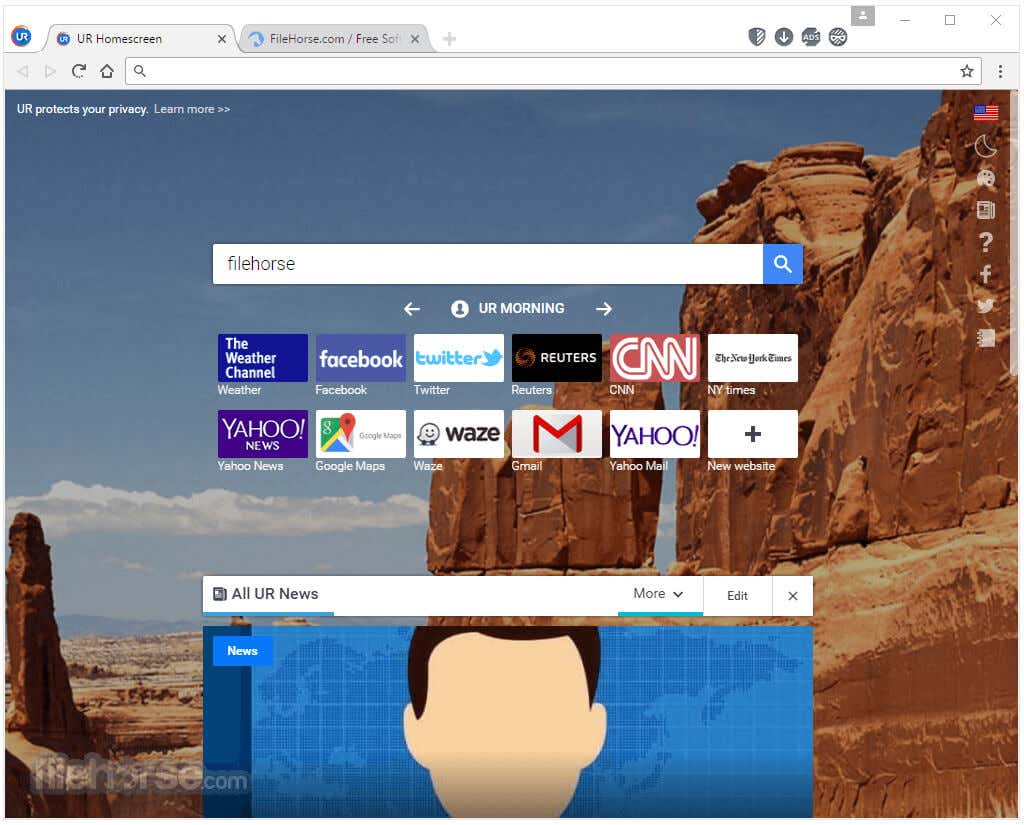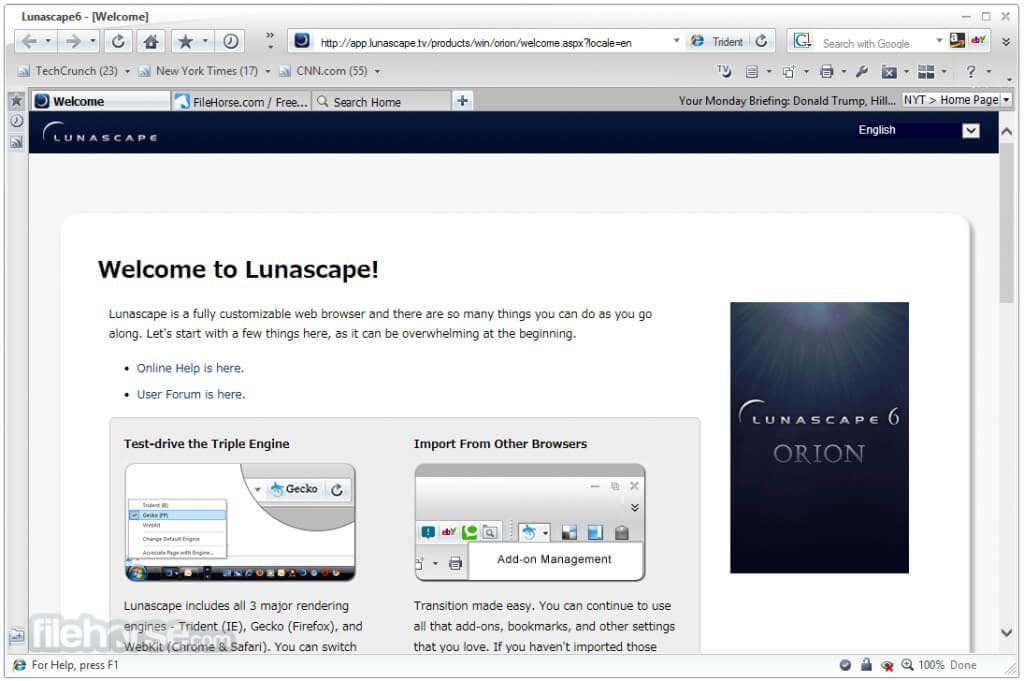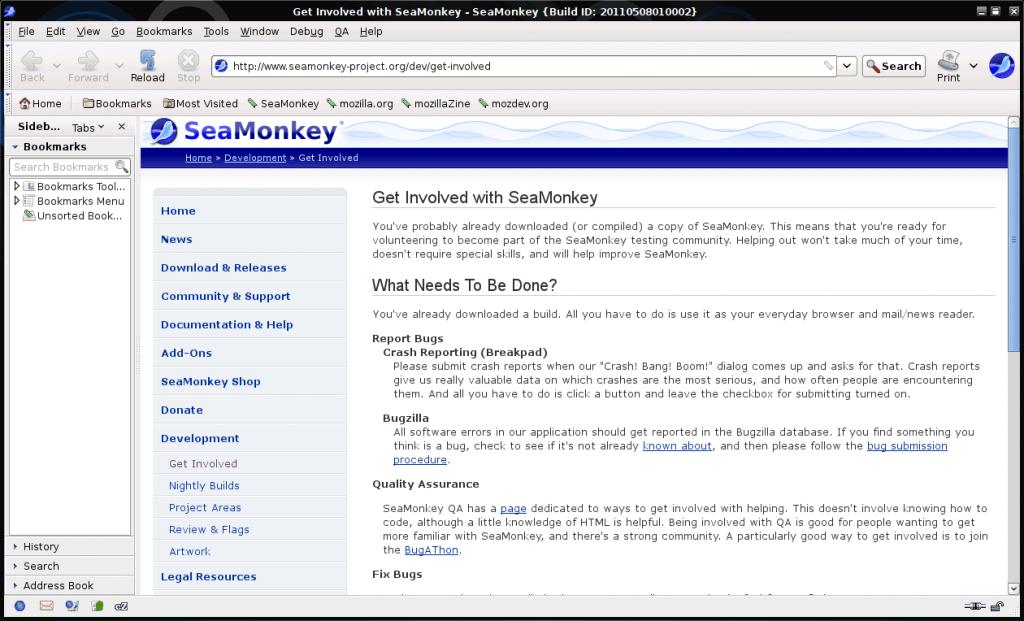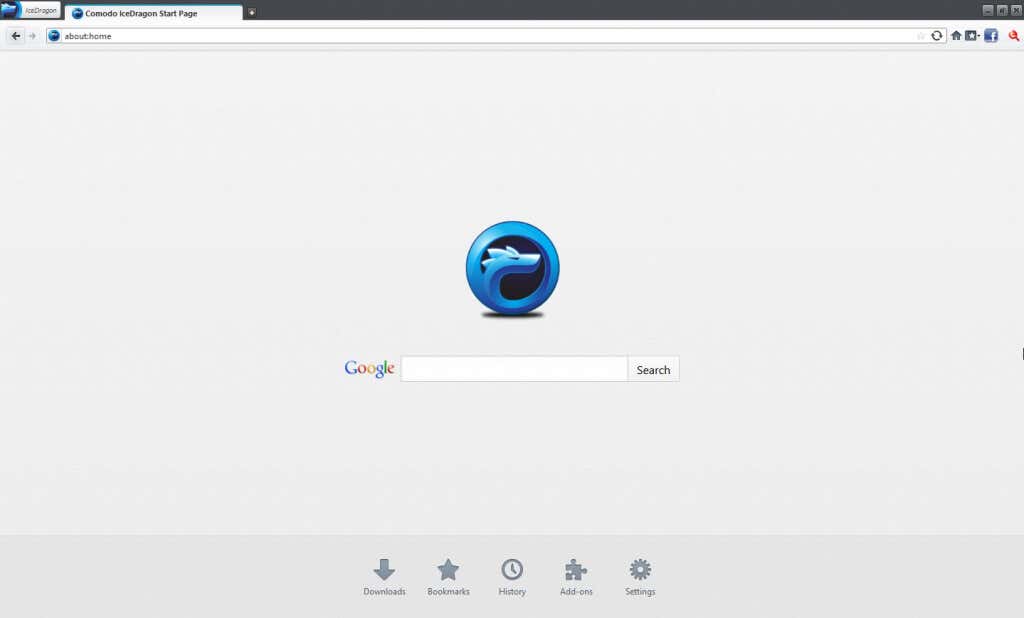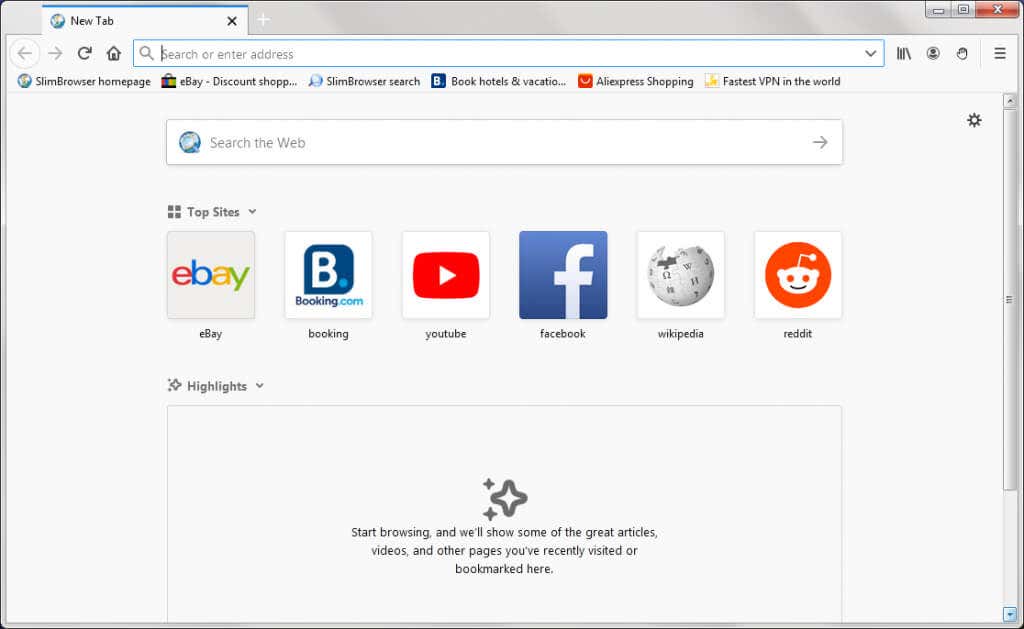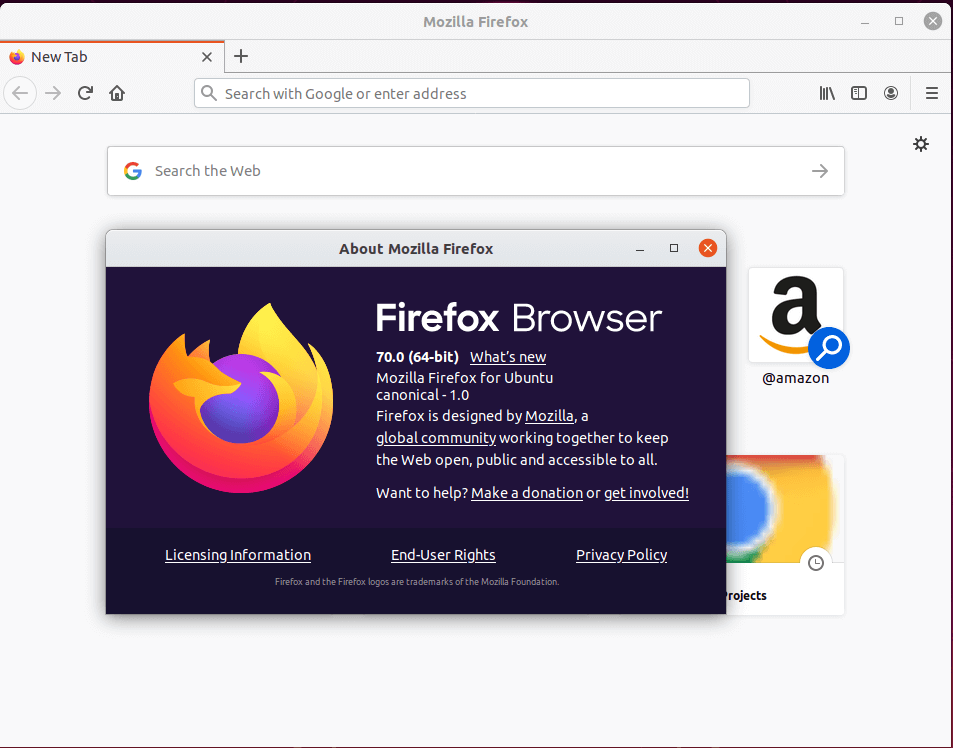Web browsers have evolved greatly over the years, adding on more features all the time. A side-effect of this feature bloat is that modern browsers are resource hogs. They need the latest operating systems and large amounts of memory to work without issues. You can try speeding up Chrome on your computer, but it just won’t work on some older computers.
This can make it very difficult to browse the internet on an old PC. Fortunately, plenty of lightweight browsers exist. Here is a selection of the best browsers for old computers.
1. K-Meleon
K-Meleon is probably one of the least resource-intensive browsers out there. It can run on just 256 MB of memory and 70 MB of storage.
Better yet, K-Meleon supports almost every Windows operating system. Windows XP, Vista, even Windows 95 – every version of Windows can run K-Meleon. It is infinitely customizable, allowing you to modify the toolbar, the menus or just add a bunch of plugins to extend its capabilities.
On the technical side, expect an experience similar to Firefox, as K-Meleon is based on the same engine. Thus things like tabbed browsing or mouse gestures are available out of the box even on this barebones browser.
2. Pale Moon
K-Meleon is great, but it isn’t available on Linux. If you’re looking for a similarly lightweight browser that works on Linux, Pale Moon is a good option.
Like K-Meleon, Pale Moon is based on Mozilla. However, it uses the more efficient Goanna architecture. This means it supports multi-threading on modern processors, offering a significant speed boost compared to older browsers.
In design, the application resembles an older Mozilla Firefox. This isn’t a bad thing if you like its earlier version. On the security side, it’s actually better than Firefox. Pale Moon automatically blocks spyware and ads without the need to install a browser extension. This makes it the perfect fit for the security-focused Linux operating system.
3. UR Browser
Most lightweight browsers are based on Gecko or Web Kit and with good reason. The Chromium engine used by Google Chrome isn’t exactly known for its efficiency. This is demonstrated by the resource-hogging nature of Chrome, which can easily eat up 4 GB of RAM on tabbed browsing.
The UR browser, though, manages to make it happen. It’s a fast and lightweight browser based on the Chromium engine that works on Windows 7 and above (Mac X 10.9 as well).
The most important aspect of this browser is the robust privacy feature. Using the built-in VPN, you can choose between three privacy levels, ensuring the best security of your personal data on the web.
4. Lunascape
As you might know, web browsers run on a core “engine”. Internet Explorer uses Trident, Mozilla Firefox is built on Gecko, and Apple’s Safari is powered by Web Kit. Lunascape is unique in that it uses all three of them.
You can switch between any of these layout engines on the fly, viewing the same information in different ways. A side-effect of this flexibility is that the browser is designed to be minimalistic. There are very few extraneous features weighing things down. As a result, it works quite efficiently, even on older systems.
When using the Gecko engine, you also have access to Mozilla Firefox’s library of addons, allowing for some extensibility.
5. Sea Monkey
Some people may still remember the browser called Netscape Navigator. In its heyday, it was the most popular browser on the market, and people still swear by it. Unfortunately, the browser was discontinued a while ago and isn’t available for use anymore.
But it has a “spiritual” successor, called Sea Monkey. Building upon the Netscape codebase (which later became the Mozilla Application Suite), the browser offers the same traditional interface with modern features.
This allows the browser to support legacy add-ons that are no longer compatible with Firefox. Namely, add-ons that worked with Thunderbird and with Firefox before the switch to WebExtensions are supported. This makes Sea Monkey the perfect browser if you’re looking to recapture that old feel in a web browser today.
6. Comodo IceDragon
Yet another Firefox-based browser, you say? Well, that’s true, but Comodo IceDragon has its own unique features too.
While it was built on the Firefox codebase, it focuses more on security, integrating a number of features like a SiteInspector and a Secure DNS server to safeguard your internet browsing.
Basically, Comodo IceDragon scans every site you visit for malware, automatically detecting threats before they can reach your computer. This way, malicious code is rooted out before it gets a chance to run on the browser.
7. Slim Browser
Slim Browser is one of those rare projects that were based on Microsoft’s Trident engine. Recently though, the browser switched to the far more popular Gecko layout used in Firefox and Mozilla derivative browsers.
Feature-wise, Slim is no slouch. Things like a popup killer, auto form filling, and support for scripting are hard to find, even in leading browsers. On top of that, the browser is also fast and efficient, as the name suggests.
And while the older Trident-based version wasn’t very extensible, the newer iterations have no such problems. Switching to the Gecko layout has made it possible to use all Firefox compatible plugins with Slim Browser, making it a viable alternative.
8. Firefox
No discussion of lightweight browsers is complete without mentioning Mozilla Firefox. The most advanced implementation of the Gecko layout used by many other minimalistic browsers, Firefox is often considered the best open-source browser.
And with good reason — Firefox can give Chrome a run for its money, with comparable features delivered at a fraction of the resource usage. It is a lean and efficient browser with a vast library of plugins to customize your browsing experience.
The only reason we placed this browser at the bottom of this list is that it’s not as lightweight as the other options mentioned. While Firefox keeps its resource usage lower than most leading browsers on the market, it is still more resource-intensive than, say, K-Meleon. Also, Firefox no longer supports older operating systems, running only on Windows 7 and above.
Which Is the Best Browser for an Old Computer?
If there is a definitive number one browser for old computers, it has to be K-Meleon. There are very few browsers that can boast of a lighter resource footprint or support operating systems extending as far back as Windows 95.
That being said, there are plenty of comparable options available. Whether you choose the UR Browser, Pale Moon, Lunascape, or Firefox, they will all get the job done. They differ only in the browser engines used and the operating systems supported, so it boils down to preference.
No matter how old your computer is or which operating system it uses, there is a good web browser for it.

